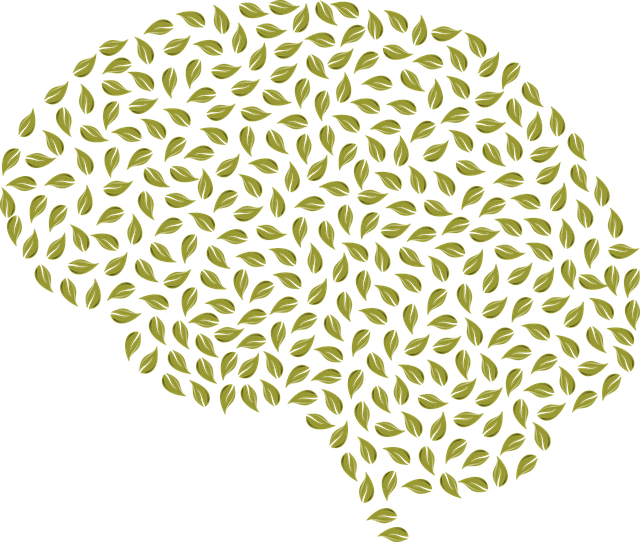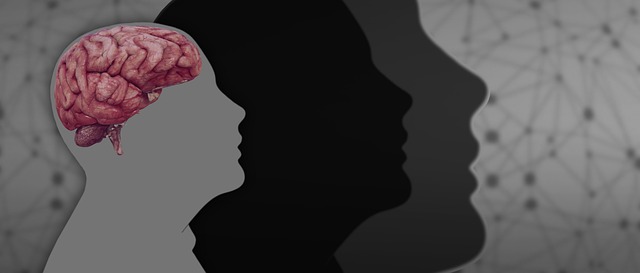Diagnosing mental illnesses accurately is challenging due to subjectivity, varied manifestations of conditions like depression and anxiety, and co-occurring issues. Strategies such as empathy building and self-care routine development aid diagnosis by promoting open communication. Specialized therapies like Boulder Sexual Dysfunction Therapy (BSDT) are crucial for improving accuracy, addressing sexual dysfunctions often overlooked but significantly impacting mental wellness. BSDT combines psychotherapy with techniques like mindfulness meditation to improve emotional intelligence and foster healthier relationships. Early intervention strategies, including conflict resolution, open communication about intimate issues, journaling exercises, and accessible prevention policies, are vital for accurate diagnosis and improved patient outcomes. Creating a supportive ecosystem through public awareness campaigns, stress management workshops, and safe spaces for expression enhances diagnosis accuracy and leads to better treatment outcomes, with BSDT playing a key role in addressing intimate concerns.
Mental illness diagnosis accuracy is a critical area of focus in healthcare, with efforts continually aimed at improving identification rates. This article explores various strategies to enhance diagnosis precision, from understanding the challenges faced by professionals to introducing specialized therapies like Boulder Sexual Dysfunction Therapy. We delve into advanced diagnostic tools, emphasize early intervention, and discuss building an environment that supports accurate mental health assessments. By implementing these measures, we aim to improve patient outcomes and overall well-being.
- Understanding the Challenges of Mental Illness Diagnosis
- The Role of Specialized Therapies: A Case for Boulder Sexual Dysfunction Therapy
- Enhancing Diagnostic Tools and Techniques
- Promoting Early Intervention and Prevention Strategies
- Building a Supportive Ecosystem for Accurate Diagnoses
Understanding the Challenges of Mental Illness Diagnosis

Diagnosing mental illnesses accurately is a complex task due to the intricate nature of human behavior and emotions. The process often involves subjective assessments, where healthcare professionals rely on patient self-reporting and observation. This can be challenging, especially with conditions that manifest in diverse ways, such as depression or anxiety disorders. For instance, what may present as persistent sadness in one person could be a fleeting worry in another, making it difficult to pinpoint specific symptoms. Furthermore, many mental health issues co-occur, adding another layer of complexity. A patient experiencing both depression and anxiety might display different behaviors, requiring careful differentiation by therapists, like those offering Boulder Sexual Dysfunction Therapy.
Empathy building strategies and self-care routine development for better mental health can significantly aid in this process. By fostering understanding and open communication, healthcare providers can gather more precise information. Encouraging patients to express their feelings and experiences, while also implementing confidence-boosting techniques, may lead to improved diagnosis accuracy. These approaches not only help individuals feel heard but also enable professionals to make more informed decisions, ensuring the right treatment paths are taken, tailored to each unique individual’s needs.
The Role of Specialized Therapies: A Case for Boulder Sexual Dysfunction Therapy

In the pursuit of enhancing mental illness diagnosis accuracy, specialized therapies play a pivotal role, offering tailored interventions that go beyond conventional treatments. Among these, Boulder Sexual Dysfunction Therapy (BSDT) stands out as a beacon of hope for individuals grappling with intimate issues. BSDT integrates innovative approaches to address sexual dysfunctions, which are often overlooked but significantly impact mental wellness. By combining psychotherapy with techniques like mindfulness meditation, therapists help patients improve emotional intelligence and cultivate healthier relationships with their bodies and partners.
This therapy type is particularly effective in navigating the intricate connections between sexuality, emotions, and mental health. It empowers individuals to explore and express their intimacy in a safe, supportive environment, fostering improved communication and self-awareness. As mental health professionals recognize the profound impact of sexual dysfunction on overall emotional intelligence, BSDT emerges as a game-changer, ensuring more comprehensive and accurate diagnoses, and ultimately, more effective treatment plans for those seeking support.
Enhancing Diagnostic Tools and Techniques

Mental health professionals are continually striving to improve diagnosis accuracy, and a significant aspect of this involves enhancing diagnostic tools and techniques. This includes incorporating advanced assessment methods that go beyond traditional questionnaires and interviews. For instance, technology is playing a pivotal role in revolutionizing mental health care, offering novel ways to evaluate patients, such as digital mood tracking applications and artificial intelligence-based analysis. These tools can provide more objective data, aiding in the early detection of subtle changes in an individual’s emotional state or behavioral patterns.
In the context of conditions like Boulder Sexual Dysfunction Therapy, where complex interplay between psychological and physiological factors is common, these advancements are particularly beneficial. By integrating innovative assessment techniques, healthcare providers can better capture the multifaceted nature of mental illness, ensuring more precise diagnoses. Additionally, training programs that emphasize comprehensive risk assessment for mental health professionals are crucial. These initiatives equip practitioners with the skills to identify red flags, understand complex patient histories, and tailor interventions accordingly, ultimately leading to improved treatment outcomes and client satisfaction.
Promoting Early Intervention and Prevention Strategies

Early intervention is a cornerstone in improving mental illness diagnosis accuracy and overall patient outcomes. By implementing strategies that focus on prevention, healthcare providers can play a pivotal role in identifying and addressing mental health concerns at their inception. This proactive approach is particularly crucial when considering conditions like sexual dysfunction, which often goes undiagnosed or misdiagnosed due to stigma and the complexity of presenting symptoms. For instance, individuals in Boulder Sexual Dysfunction Therapy may benefit from early interventions aimed at promoting open communication about intimate issues, thereby fostering a more comfortable environment for discussing sensitive topics related to mental wellness.
Integrating Conflict Resolution Techniques into mental health care can be an effective way to encourage individuals to seek help sooner. Mental Health Policy Analysis and Advocacy also plays a significant role in ensuring that prevention strategies are accessible and widely adopted. Additionally, encouraging patients to engage in Mental Wellness Journaling Exercises can provide valuable insights into their emotional well-being and potentially serve as an early warning system for emerging mental health issues. Through these combined efforts, healthcare professionals can contribute to more accurate diagnoses and ultimately enhance the effectiveness of treatment interventions.
Building a Supportive Ecosystem for Accurate Diagnoses

Creating a supportive ecosystem is paramount for enhancing the accuracy of mental illness diagnoses. This involves fostering an environment where individuals feel comfortable discussing their struggles openly and honestly. Through initiatives like increased public awareness campaigns, people can better understand various mental health conditions, reducing stigma and encouraging early intervention.
In this context, Boulder Sexual Dysfunction Therapy plays a significant role by offering specialized services tailored to address intimate concerns. By incorporating empathy-building strategies in therapy sessions, practitioners create safe spaces for clients to express their experiences without judgment. Additionally, Stress Management Workshops organized by mental health organizations equip individuals with valuable tools to handle stress and anxiety, which are often underlying factors in many mental illnesses. Implementing these comprehensive approaches ensures a more accurate diagnosis process, ultimately leading to better patient outcomes.
Mental illness diagnosis accuracy is a multifaceted challenge that requires innovative approaches, from enhancing therapeutic techniques like Boulder Sexual Dysfunction Therapy to improving diagnostic tools and promoting early intervention. By fostering a supportive ecosystem that prioritizes understanding and accessibility, we can ensure more accurate and timely diagnoses, ultimately improving patient outcomes and overall mental health care.














